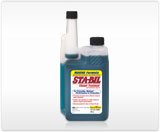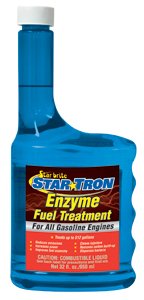Redneck in training
Elite Member
I used to race boats 40 years ago. Fuel was not specified so we could burn anything. The fuel of choice was methyl alcohol reason being it has octane number about 110 (if I remember it right), since it has about half of the energy content there was twice much as delivered to the engine. Since it had to evaporate before ignition it lowered internal engine temperature preventing burned pistons. The engines had compression ratio close to the diesel range of about 14 to 15. Typical engine produced about 300 HP/liter or 491 HP/100 cubic inches. Trade of was about 8 hours between overhauls.
Ethanol has similar qualities as methyl. It doesn't burn hotter (as somebody previously suggested) but in fact it burns slower than gas and if the ignition timing is not advanced enough it will be still burning when exhaust valve opens burning it. Gasoline engine runs at most efficient region close to knocking. Most modern engines have knocking sensor and the fuel is leaned and ignition advanced until knocking is detected and then the engine management unit somewhat backs off. For older engines it should be necessary to set ignition (for ethanol blend) to somewhat greater advance than for pure gas I suppose.
Ethanol has similar qualities as methyl. It doesn't burn hotter (as somebody previously suggested) but in fact it burns slower than gas and if the ignition timing is not advanced enough it will be still burning when exhaust valve opens burning it. Gasoline engine runs at most efficient region close to knocking. Most modern engines have knocking sensor and the fuel is leaned and ignition advanced until knocking is detected and then the engine management unit somewhat backs off. For older engines it should be necessary to set ignition (for ethanol blend) to somewhat greater advance than for pure gas I suppose.


